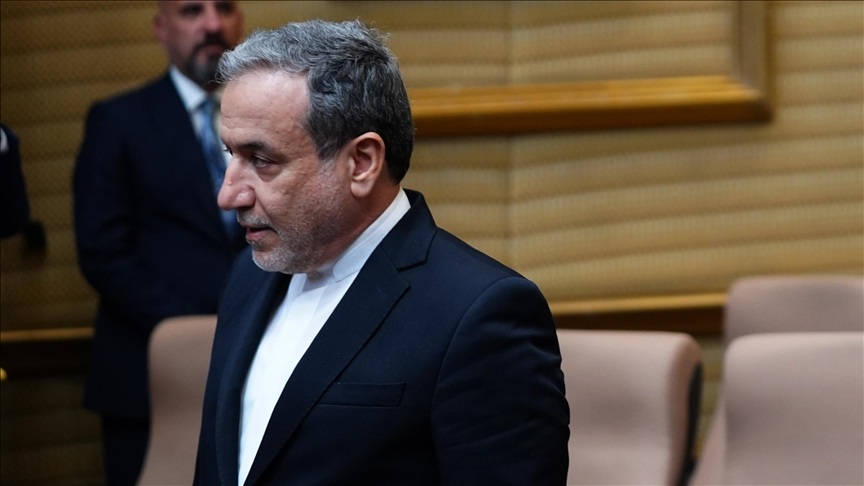At a highly charged UN Human Rights Council session in Geneva on Friday, June 20, 2025, Iran’s top diplomat, Foreign Minister Sayed Abbas Araghchi, launched a blistering attack on Israel, accusing it of waging an “unjust and criminal war” against Iran.
In a powerful speech, he demanded that the global community step forward to condemn what he described as a “merciless act of aggression.”
Araghchi opened by recalling Iran’s population, nearly 100 million, and framing the recent Israeli military strike as a blatant assault on a sovereign nation.
He likened the attack to a continuation of the alleged genocide in Palestine, a campaign he believes has raged for two years.
The Israeli offensive, he said, struck residential neighborhoods, vital infrastructure, hospitals, health centers, and even the Iranian Foreign Ministry itself, pretty much the heart of civic life.
According to Araghchi, the strike inflicted heavy losses: “Hundreds of my fellow Iranians have been killed and injured.”
He also claimed that nuclear facilities, fully monitored by the International Atomic Energy Agency, were targeted.
Araghchi branded the strikes as grave war crimes with the potential to unleash disasters of both environmental and humanitarian proportions.
Legal and Moral Underpinnings
Araghchi tugged hard at legal strings, citing Article 2(4) of the UN Charter, which bars any nation from using force against another’s sovereignty.
He emphasized Iran’s right to self-defense under Article 51, declaring that Tehran would defend itself “with all force” if necessary.
“If international systems set up to protect human rights mean anything, now is the moment to enforce them,” he urged—the message clear: global organizations must now act decisively to uphold peace and human dignity.
Global Reactions and Diplomatic Pushback
Not everyone welcomed Araghchi’s speech. Israel’s UN ambassador in Geneva, Daniel Meron, swiftly issued a “vehement objection”.
He criticized the scheduling of Araghchi’s address.
He said Iran was not engaged in peace negotiations, unlike its European counterparts, and warned that Tehran should instead be on the receiving end of pressure.
Meron urged Europe to adopt a firm stance: insisting Iran roll back its nuclear activities, dismantle ballistic missile programs, and halt its destabilizing influence across the Middle East.
What It Means on the World Stage
A Watershed Escalation
This is not diplomatic sparring, it’s a confrontation.
With Iran describing the strikes as genocide-level aggression, any retaliatory response could spark a broader Middle Eastern meltdown.
Legal Crossfire
Araghchi’s repeated references to the UN Charter aim to frame Iran’s actions as legitimate defense.
Yet, Israel, and likely its Western allies, will argue that the strikes were a necessary countermeasure to an escalating threat.
UN’s Crucible of Credibility
With the UN Council positioned to react, real-time global attention focuses on whether its mechanisms can meaningfully address such a momentous act of aggression, rather than sit idly by.
Diplomatic Crosswinds
Israeli demands for a nuclear rollback and Iran’s insistence on self-defense promise a flurry of diplomatic moves ahead.
European powers and the U.S. now find themselves pulled between calls for restraint and the need to support national security interests.
Humanitarian Alarm
Beyond legal arguments, Araghchi’s reference to civilian casualties and nuclear safety heightens fears of a humanitarian crisis, whether stemming from radiation leaks, damaged hospitals, or mass displacement.
Why International Audiences Should Care
Ripple Effect on Oil Markets: Any expansion of the conflict could instantly affect global energy prices, with possible supply chain disruptions.
Redrawing Alliances: The crisis raises questions about loyalties across Europe, the U.S., Russia, and China—each balancing security interests against strategic alliances.
Precedent in Question: If a nation can strike critical infrastructure in another with minimal consequences, the UN system risks sliding toward impotence.
Human Toll: Whether Israeli or Iranian, every death raises the stakes for humanitarian intervention—echoing concerns from today’s global conflicts.
Final Thoughts
Iran’s demand for global condemnation isn’t just rhetoric, it’s a legal challenge and an urgent plea.
As Tehran prepares its own defense, the scope for misunderstanding—or worse, escalation—is high.
All eyes are now on Geneva, Washington, Brussels, and beyond.
Will global institutions, governments, and opinion leaders see this moment as a tipping point, or will the world stumble on in fractured silence?
For people aged 18–65 worldwide, the question looms large: Can diplomacy withstand the blast of modern warfare, or are we watching the unraveling of another era?







